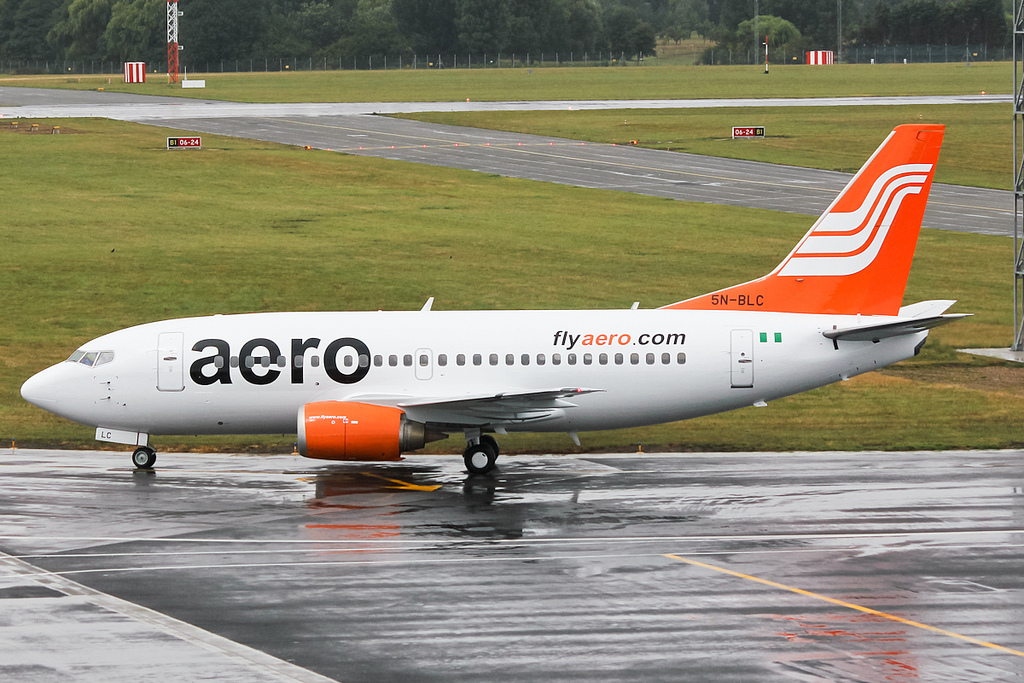
By Patience Chat Moses
In a significant move aimed at strengthening Nigeria’s aviation industry, the Nigerian Civil Aviation Authority (NCAA) has announced a strategic partnership with the International Air Transport Association (IATA) to enhance the capacity of the nation’s aviation workforce. This collaboration signals a new era of professional development, positioning Nigeria’s aviation sector to meet global standards and demands.
The initiative aims to equip aviation personnel in the country with the skills needed to meet global standards and ensure operational excellence in the industry.
The announcement was made by the Acting Director General of NCAA, Capt. Chris Najomo, during a strategic meeting with IATA’s Regional Vice President for Africa and the Middle East, Kamil H. Al-Awadhi, at the Authority’s headquarters in Abuja, as contained in a statement of NCAA’s official website.
“The Nigeria Civil Aviation Authority (NCAA) has expressed readiness to partner International Air Transport Association (IATA) in providing qualitative training and retraining for its workforce.
“Acting Director General, Nigeria Civil Aviation (Ag. DGCA), Capt. Chris Najomo made this known during a strategic meeting with the leadership of IATA led by its Regional Vice President for Africa & Middle East, Mr. Kamil H. Al-Awadhi at the Authority’s Headquarters in Abuja,” the statement reads.
In addition to plans to collaborate with the NCAA on aviation workforce training, IATA’s delegation, led by Regional Vice President for Africa and the Middle East, Kamil H. Al-Awadhi, offered its expertise to support Nigeria’s airport concession efforts through public-private partnerships (PPP).
The proposal was presented during a recent meeting with Aviation Minister Festus Keyamo at his office in Abuja, with the announcement shared via his official X (formerly Twitter) account on Tuesday.
Keyamo’s post also noted that during the meeting, IATA commended Nigeria for resolving the backlog of trapped airline funds through the Central Bank of Nigeria (CBN), providing critical financial relief to international carriers.
“Yesterday, a delegation from the International Air Transport Association, IATA @IATA led by Kamil Awadhi, paid me a working visit. They expressed gratitude for Nigeria’s effort in clearing the backlog of trapped funds of international airlines with the CBN.
“The delegation also expressed their wish to offer their services to the Ministry in respect of the planned concession of some airports in Nigeria through public-private partnerships (PPP) because of their vast experience in this area, an offer I gladly welcomed, stating that it was a badge of honour for Nigeria,” the post stated.
The proposed collaboration with IATA on airport concessions aligns with Nigeria’s broader efforts to enhance aviation infrastructure and attract global partnerships to improve airport operations through public-private initiatives.
The Need for Capacity Building in Nigeria’s Aviation
With its growing aviation sector, Nigeria plays a pivotal role in connecting Africa to the rest of the world. However, like many emerging markets, it faces challenges related to skill gaps, regulatory compliance, and the need for enhanced safety measures. This partnership with IATA, the leading authority in global aviation standards, comes as part of a broader effort to ensure the country’s aviation workforce is equipped with the latest knowledge, skills, and best practices required to operate in a highly competitive global environment.
The NCAA has long emphasized the importance of a skilled workforce to the success of Nigeria’s aviation sector. As the industry expands with more airlines, airports, and passengers, the demand for trained personnel in safety, operations, management, and regulatory compliance is rising. The initiative with IATA is designed to bridge the skills gap, focusing on professional training, regulatory oversight, and safety management.
Focus Areas of the Partnership
The NCAA-IATA partnership will provide a wide range of training and development programs, covering key areas such as:
Aviation Safety and Security: Ensuring that Nigeria’s aviation workforce is well-versed in the latest safety protocols and can mitigate risks effectively.
Operational Efficiency: Training airline and airport staff in global best practices to enhance operational performance, reduce delays, and improve passenger experience.
Regulatory Compliance: Strengthening the regulatory framework by ensuring that personnel are up to date with international aviation laws and regulations.
Leadership and Management Development: Building the next generation of leaders who will guide Nigeria’s aviation industry towards sustainability and innovation. These programs will be tailored to the specific needs of the Nigerian aviation market while aligning with IATA’s globally recognized standards, ensuring that Nigeria’s aviation professionals are on par with their international counterparts.
Benefits for the Nigerian Aviation Industry
This partnership is expected to have far-reaching impacts on the Nigerian aviation sector. By investing in capacity building, the NCAA aims to improve the overall safety and efficiency of the industry. Well-trained personnel will be better equipped to handle complex challenges, ensuring smoother operations, better compliance with international regulations, and a stronger safety culture.
Furthermore, this collaboration will enhance Nigeria’s standing within the global aviation community. By aligning with IATA’s standards, Nigerian airlines and airports will be better positioned to participate in global aviation initiatives, attract international investments, and boost tourism.
Another significant outcome of this partnership will be the creation of job opportunities. As the industry grows, the demand for skilled workers will rise, offering employment to thousands of Nigerians across different sectors of the aviation industry. Additionally, a well-trained workforce will make Nigeria more attractive to international airlines and aviation companies, driving further economic growth.
The partnership between the NCAA and IATA is a progressive step that will transform Nigeria’s aviation workforce. By investing in capacity building, the industry will not only raise its operational standards but also ensure long-term growth and competitiveness on the global stage. This collaboration underscores the importance of continuous professional development in an ever-evolving industry, setting the foundation for a safer, more efficient, and robust aviation sector.

